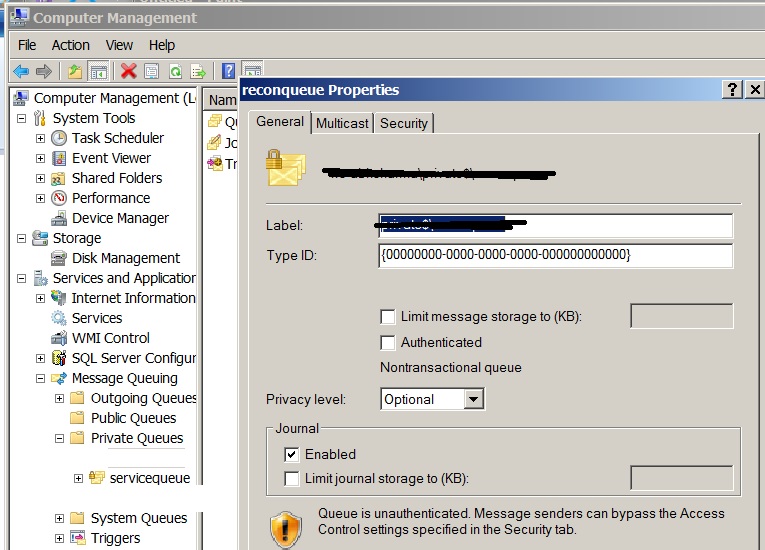Yes, you need MSMQ installed locally to write to a remote queue. If you're writing to a private queue, take a look at this page which has useful information on how to format the queue name. If you're writing to a remote Transactional queue, then you need to make sure you specify that correctly (point 5)
This is the article text:
1. When working with remote queues, the queue name in the format machinename\private$\queuename doesn't work. This results in an
"invalid queue path" error.
2. The queue name has to be mentioned as FormatName:Direct=OS:machinename\\private$\\queuename.
This is necessary since the queue access is internally done using the format
name syntax only. The other friendly representation is converted to
the FormatName and then used. When working with remote queues, unless
there is an AD to resolve the queue name, the friendly name won't
work. Check out documentation for details.
For Eg.
MessageQueue rmQ = new MessageQueue
("FormatName:Direct=OS:machinename\\private$\\queue");
rmQ.Send("sent to regular queue - Atul");
3. Further to previous point, note that FormatName is case sensitive. If you mention the earlier string as
FORMATNAME:Direct=OS:machinename\\private$\\queuename, it won't
work. Surprisingly, there is no error thrown in this case.
"FormatName" part of the string seems to be the only case sensitive
part. Others can appear in different case. For eg. You can write
"DIRECT".
4. In case you want to use the machine's IP address the syntax will be FormatName:Direct=TCP:ipaddress\\private$\\queuename.
For Eg.
MessageQueue rmQ = new MessageQueue
("FormatName:Direct=TCP:121.0.0.1\\private$\\queue");
rmQ.Send("sent to regular queue - Atul");
5. The transactional properties of the queue instance you create in code should match with that of the queue you are trying to send the
message to. So in the earlier examples, I was sending message to a
non-transactional queue. To send to a transactional queue, the code
would be
MessageQueue rmTxnQ = new MessageQueue
("FormatName:Direct=OS:machinename\\private$\\queue");
rmTxnQ.Send("sent to Txn queue - Atul", MessageQueueTransactionType.Single);
If the transactional properties don't match, the message will not be
delivered. The surprising part is again, I didn't get any error, and
the message just disappeared
6. Finally, when you send messages to remote queue, a temporary outgoing queue is created on your own machine. This is used in case
the remote queue is unavailable. If you go to the computer Management
console (compmgmt.msc), and expand the Services and Applications /
Message Queuing / Outgoing Queues, you would see these queues. The
right side of the console should show the details including the state
(connected or not) and the IP address(es) for the next hop(s).

